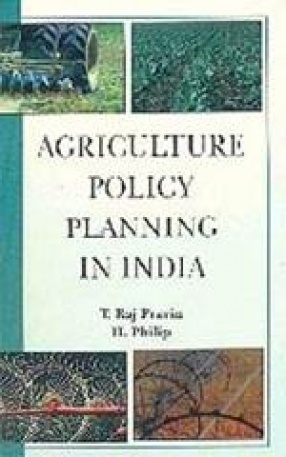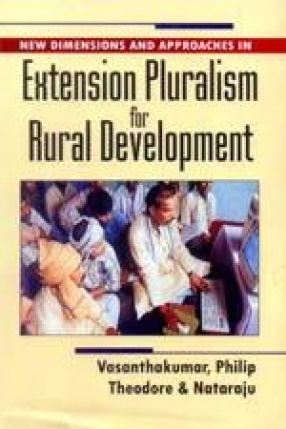Agricultural policy planning is five decades old in independent India. The success of green revolution owes a lot to this planning initiative undertaken from experiences of different nations, works being undertaken in our country by nationalist leaders. Million of farmers gained from use of new technologies improving production and productivity. Food security has been achieved and the criticism of international press as "Food to mouth" situation has being changed within fewer years by generating exportable surplus. Many countries around the globe which achieved freedom during 1940s collapsed by the failure of food generation system. So the success of Indian democracy has green revolution at its fold. However, with changing priorities the shift has taken place from ensuring food security towards nutrient security in India. No longer production and productivity of agricultural produce aids in prosperity but successful marketing of produce increases producer’s share in consumer rupee. Unlike earlier years wherein a socialist economy was in place today market economy with the diminishing role of state needs to find focus in policy planning. Unlike the earlier green revolution process where "haves" alone benefited the second green revolution should also include the "have nots" resource poor and vulnerable, disadvantaged sections of the society in its fold. Policymakers, administrators and researchers should study the available institutional infrastructure, resource availability, ground realities in planning process. "You can prepare many number of action plans, but the action has to be taken up by the farmers who are illiterate, unskilled resource poor. So planning should be done accordingly" said Dr. M.S. Swaminathan, the Father of Green Revolution process. Bottom to top approach, decentralized devolution of powers with elected representatives, access to farm technology, modern communication devices need greater.
Agricultural Policy Planning in India
$15.30
$17.00
In stock
Free & Quick Delivery Worldwide
All orders amounting to US$ 50 or more qualify for Free Delivery Worldwide. For orders less than US$ 50, we offer Standard Delivery at $14 per book.
ABOUT THE AUTHOR H. Philip
Dr. H. Philip, Professor, educational Media Centre (EMC), Tamil Nadu Agricultural University (TNAU), has a Ph.D., in Agrl. Extension and PG Diploma in Computer Applications. He is the recipient of the Best Extension scientist Award (twice) and the Nataraj Rolling Shield and Medal for Agrl. Extension. He has guided 8 M.Sc and 2 Ph.D. students so far. He is responsible for establishing the educational Media centre in TNAU with professional & state-of –the-art video film equipment. He has produced till now nearly 150 video documentaries, 25 audio cassette lessons and more than 600 radio programmes on agriculture. He has organised one international and 9 national level training programmes, besides participating in 6 International and 22 National level seminars/workshops. He has published 62 papers and edited 22 books. Currently, he is the Chief editor of the Journal of extension Education. He is a member in the International extension Formu, Madaras Agrl. Students Union, Distance Committee of TNAU and Society of Educational Technology. He has traveled to Canada for Participating in a training conducted by the university of Guelph, Toronto.
reviews
0 in total
Review by Anonymous
Be the first to review “Agricultural Policy Planning in India” Cancel reply
You must be logged in to post a review.
Bibliographic information
Title
Agricultural Policy Planning in India
Author
Edition
1st ed.
Publisher
ISBN
8177542206
Length
x+140p., 23cm.
Subjects
more by H. Philip see more
New Dimensions and Approaches in Extension Pluralism for Rural Development
With 72.21 per cent of the ...
$45.00
$50.00
similar bookssee more
An Introduction to Environmental Biology: For Undergraduate Students of Environmental Studies and Engineering
Awareness in the field of ...
$141.30
$157.00







There are no reviews yet.